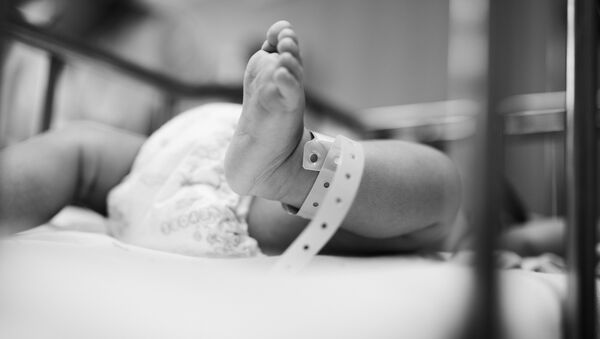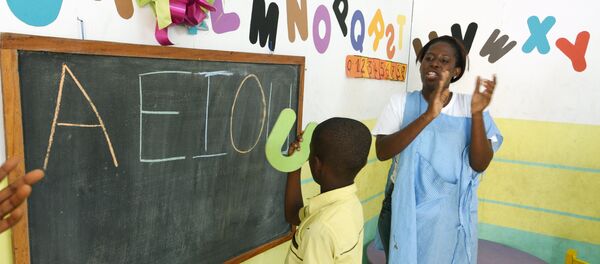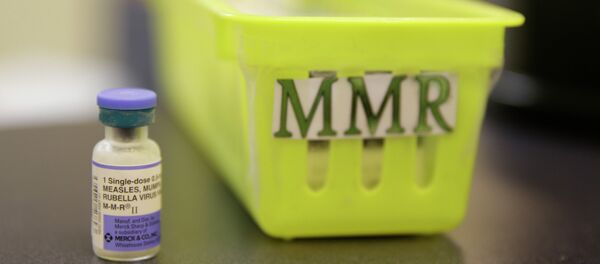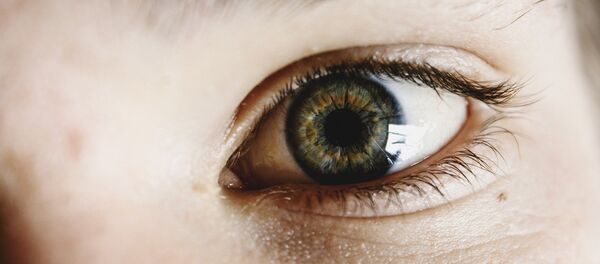"It is necessary to classify autism in line with its true biological causes, rather than behavioural patterns", said Tatyana Stroganova, head of the Center of Neurocognitive Studies and a professor at the Faculty of Differential Psychology and Psychophysiology of the Department of Clinical and Special Psychology at Moscow State University of Psychology and Education.
The term "autism" was coined in 1938, with Samuil Mnukhin offering the first scientific description of the disorder's symptoms in 1947. For 60 years, the condition was considered rare and even exceptional, but the situation changed in 2005 when experts estimated that there was one case of autism per 250-300 newborns.
"Both countries are beginning to discuss autism growth rates," said Natalya Tyurina, head of Rossiya Segodnya's Education and Social Projects Department.
Specialists all over the world explain autism and autism spectrum disorders (ASD) by disrupted communications networks. At the same time, research of the past few years shows that the symptoms of ASD are similar to those of numerous disorders.
READ MORE: Has the World Gone Mad? UK University Bans Clapping Because It's Not 'Inclusive'
AFA specialists advocate additional opportunities for people with autism, protect their rights, help them find jobs and work with their families and friends. They promote the creation of similar organizations in India and Southeast Asian countries.
Arthur Khaustov, director of the Federal Resource Center for Organization of Comprehensive Support to Children with Autism Spectrum Disorders at Moscow State University of Psychology and Education, noted that his centre was the main Russian state autism organization.
The elaboration of standard criteria for gauging the efficiency of support measures is a challenging issue facing the international academic community, he noted.
"Next year, there are plans to create a protocol with formal standards making it possible to see whether any specific treatment methods meet criteria being drafted by scientists," the expert said and noted that the centre's employees seek international cooperation in this area.
READ MORE: Italy's Suppression of Mandatory Vaccination: Wrong Signal For Europeans' Health
Preschoolers study for 12-24 months, said Maria Bereslavskaya, head of the Preschool/School Department at the Federal Resource Center for Organization of Comprehensive Support to Children with Autism Spectrum Disorders at Moscow State University of Psychology and Education. Each group has a speech therapist, a psychologist and a special education expert.
"We have sensory rooms and a media screen showing the school schedule. Some supports are eventually removed, thereby allowing children to adapt to a standard school environment more easily," she noted.
The centre trains specialists and parents of children with ASD (who have a higher education) under a two-year modular program called Psychological-Pedagogical Support for People with ASD, said Lyudmila Tishina, head of the Faculty of Special Education at the Department of Clinical and Special Psychology of Moscow State University of Psychology and Education.
"No two autists are alike, and this is a global trend," she added. Quite often parents become their children's best assistants, she noted.
READ MORE: Gene Editing Decreases Repetitive Behaviors in Mice — Study
Each autistic person is unique; therefore, specialists earning MA degrees must have a diverse education. They develop diagnostic methods and methodological recommendations in the field of alternative communications and behavioural problems (including bad food habits and destructive behaviour) for various specialists.
"In 2014, Russia launched the first national MA program that has already trained 80 teachers, psychologists and special education experts who work in the education, healthcare and social security sectors," she said in conclusion.
People in Russia know the story of Indian writer and poet Tito Rajarshi Mukhopadhyay, who published his book Beyond the Silence: My Life, the World and Autism in 2000. Videoconference participants noted that articles and television shows involving this person have expanded the perception of an autistic person's inner world.
The successful socialization of autistic superstars and people from their inner circle helps to more actively assist people with ASD and raise public awareness of this acute issue.






